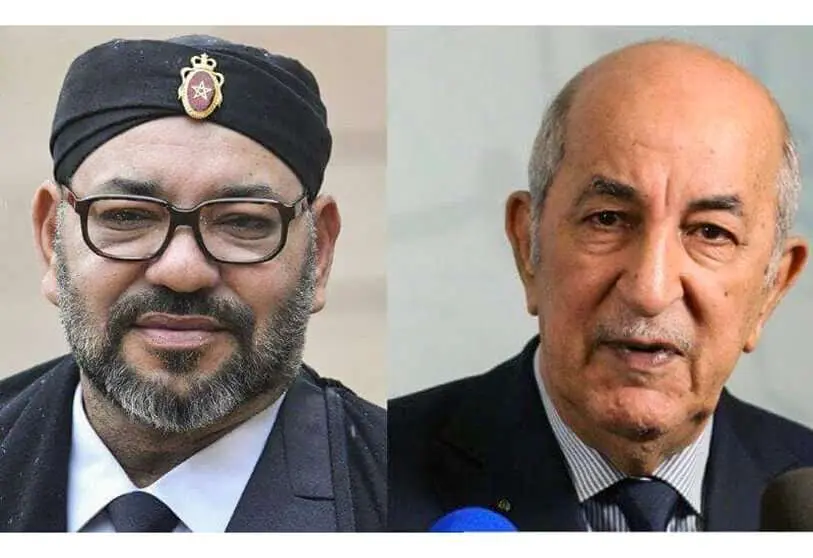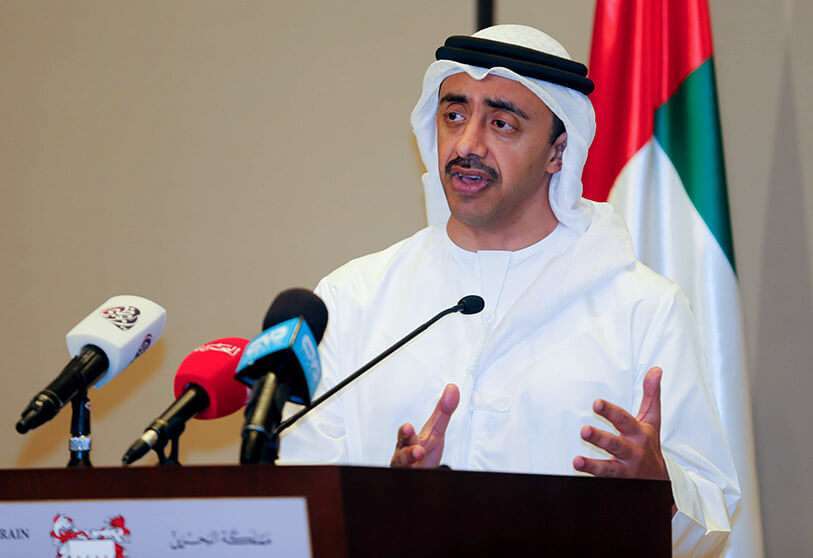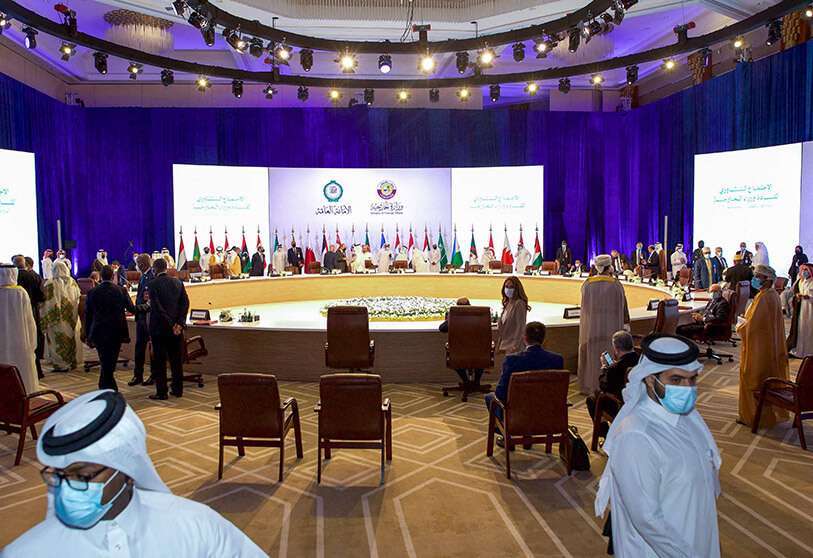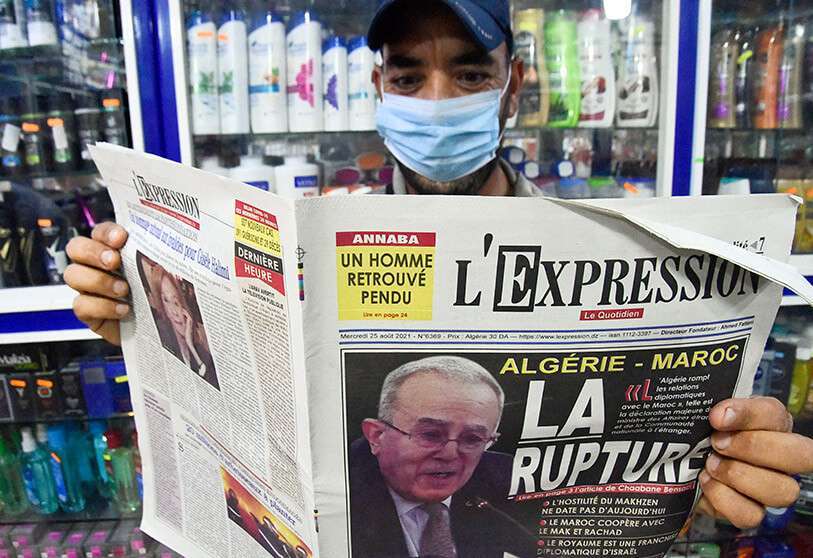Los actores regionales árabes lamentan la ruptura entre Rabat y Argel y llaman al diálogo

The definitive rift between Rabat and Algiers has brought their bilateral relations to the most critical point in decades. The spiral of disagreements in recent months led to a complete rift between the two administrations on Tuesday. Algerian Foreign Minister Ramtane Lamamra delivered the final blow at the request of President Tebboune: "Algeria has decided to break off diplomatic relations with Morocco as of today," he said. The Alawite kingdom limited itself to criticising the Algerian government and called its decision "unjustified", while trying to build bridges with civil society in the neighbouring country.
Arab states and various regional actors are now involved in a conflict with no sign of de-escalation and capable of denting North Africa's development because of its deep ramifications. The Mediterranean, the rest of the continent and the regional order could be affected by the Algerian government's latest move. In this scenario, some have spoken out to take sides, others to try to bring positions closer together and find a solution to a conflict that is "expected" given the ongoing frictions.

The Emirati foreign minister, Sheikh Seikh Abdullah bin Zayed Al Nahyan, expressed Abu Dhabi's position through a communiqué in which he regretted the frontal rupture and tried to iron out the differences between Rabat and Algiers. "The UAE has always worked to deepen and strengthen Arab relations and, from this point of view, deplores the ongoing developments between Algeria and Morocco," he said. The UAE has strong interests in both countries and therefore maintains its neutral position.
The Arab League has also expressed similar views. The group's secretary general, Ahmed Aboul Gheit, called for calm and urged the parties to "avoid further escalation" that would put regional interests at risk. The Organisation of Islamic Cooperation (OIC) followed suit and sent a similar message. This message was supported by Saudi Arabia, Kuwait, Bahrain and Libya, which called for dialogue. The new government in Tripoli called for restraint from its neighbours and "deeply regretted" the complete estrangement.

Israel has moved in the opposite direction. Since the normalisation of its bilateral relations with Morocco, promoted by the Trump administration, the Jewish state has become a close partner for Rabat. This has led it to back the Alawi kingdom in the dispute. So much so that the new foreign minister, Yair Lapid, visited the country in early August to meet with senior Moroccan government officials. Lapid expressed his concern over "Algeria's role in the region". These statements were 'meaningless and veiled threats', according to his Algerian counterpart.
The newfound closeness between Israel and Morocco is primarily aimed at strengthening the regional axis of power that unites them and, at the same time, sets them against Iran and Algeria. The conflict in Western Sahara revealed the close ties between Tehran and Algiers, which are in favour of the Polisario Front, which they supplied with arms and funds. This, among other reasons, explains the mutual convenience that Lapid himself sought to seal with his visit to Rabat.

The United Nations has also intervened in the dispute. The UN Secretary General's spokesman, Stéphane Dujarric, called on both countries to "find ways to improve relations, including in the pursuit of peace and security in the region". France has also taken a side-step on the issue and issued a terse statement calling on the parties to "deepen ties and dialogue to consolidate their stability and prosperity". "They are two friendly countries and two essential partners", Paris concluded.
According to the Algerian government, the trigger for the rift was repeated "hostile acts" committed by Morocco in recent months. These refer to the Alawi kingdom's alleged support for the political formations Rachad and MAK, both of which have been labelled by Algiers as "terrorist organisations". One has a strong Islamist tendency; the other defends the independence cause of Kabylia. Simultaneously, Morocco's alleged use of the Israeli spying programme Pegasus against 6,000 targets of the Algerian administration, mostly political and military, and the race to become the hegemonic power in the region have pushed their agendas as far apart as possible.

In the background is the conflict in Western Sahara. Morocco is seeking international partners to follow Washington's lead in strengthening recognition of its sovereignty over the territory, while Algiers is strengthening its support for the Polisario Front, which is vying for independence. The conflict has been going on for a long time, as the borders have been closed since 1995, but the current escalation is notorious.
Following the executive's announcement, it was the legislature that ratified the decision. Both the National Assembly and the Algerian House of Representatives gave the green light to the severing of relations with Morocco. For the time being, the consequences have not yet reached the surface, but local media claim that Algeria will not renew the gas pipeline that connects the country with Spain via Morocco and supplies gas to Europe. If confirmed, this would be the first setback brought about by the Algerian government's decision.








